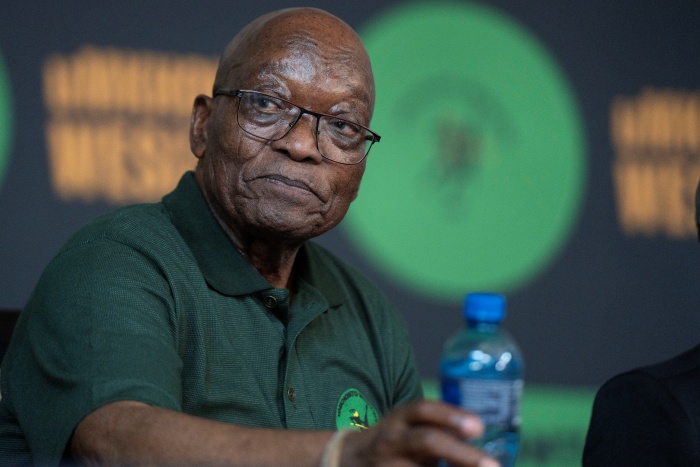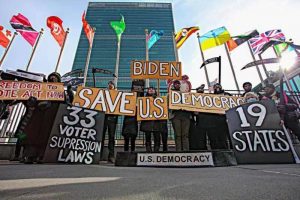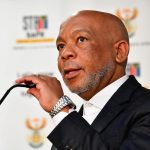Certain recent polls have found that the new uMkhonto weSizwe (MK) party will soon achieve what very few parties have been able to do in the 2024 general election. They may go on to achieve even more than that.
Every new party that has achieved relative success in their first election (and even survived afterwards) has done so on the back of anti-ANC sentiment. First Cope and then the EFF. Both dealt a blow to the ANC, although only the EFF could remain viable. It appears that MK will accomplish the same, but will in all likelihood also chip away at the EFF and IVP’s support in the process.
A poll by the Brenthurst Foundation in Johannesburg estimated MK’s support at a very respectable and indeed unmatched 13% nationally if 66% of registered voters go to vote. This trend is accompanied by an almost even drop in the ANC’s support to 39%. According to BusinessLive these findings are consistent with Standard Bank and The University of the Witwatersrand’s polls.
Of great importance is MK’s support in the country’s two largest provinces, namely Gauteng and KwaZulu-Natal – if this is true. The Brenthurst poll found they could unite 6% on their own in Gauteng and 25% in KZN, compared to 34% and 20% respectively for the ANC. It will obviously then become the largest party in KZN and possibly determine who governs in Gauteng. Although it is not often mentioned, the party can also count on reasonable support in Mpumalanga. The permutations of coalition politics, which are now based only on polling data, are beyond the scope of this article and will therefore not be discussed now.
However, it is likely that MK will have a certain national impact, as well as influence in certain provinces. The time has therefore come to examine this party, their principles and personalities.
A mediocre manifesto
Their website and election manifesto are as uncontroversial and altruistic as they are terse and unoriginal. One expects to find the EFF’s class and racial conflict or exaggerated romantic policy proposals there, but the MK looks and sounds like something that was left out of the African Union (AU) or a non-governmental organization. They have only issued two official media releases to date.
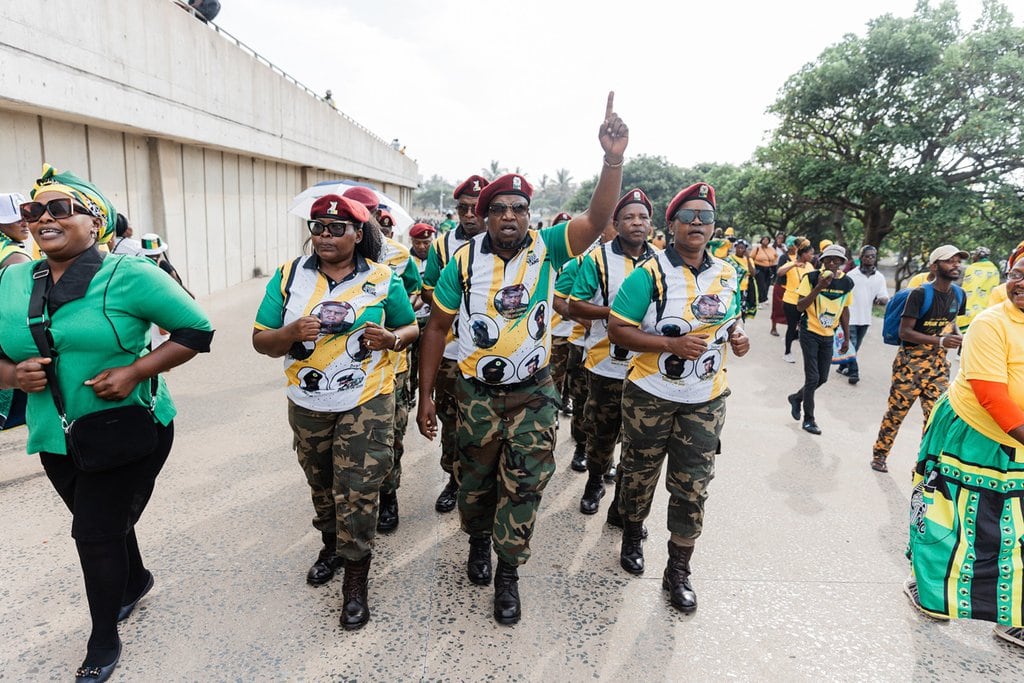
Their manifesto has eight main headings or focus areas, with two short points under each. They “about us” section, as well as their vision and mission, are summarized laconically.
They describe themselves as follows: “The MK Party, rooted in a rich history of striving for justice and equality, is dedicated to transforming South Africa into a nation where every citizen has the opportunity to thrive. Our vision is anchored in the belief that through unity, innovation, and unwavering dedication to the common good, we can overcome the challenges of economic inequality, inadequate education, and healthcare. Committed to principles of fairness, integrity, and progress, the MK Party advocates for policies that ensure sustainable development, security, and prosperity for all South Africans. Join us in building a future marked by empowerment, resilience, and enduring progress.” There is nothing militant (or special) about this.
The manifesto mentions issues such as electricity, education, land reform and economic policy. I was expecting something overtly radical, but their proposals are quite prosaic and sugary. With regard to land reform, it reads as follows: “Accelerating Redistribution: Fast-track land redistribution policies while maintaining food security and increasing food exports.” They want to secure the borders, improve law enforcement authorities, match skills to market demands, ensure that health facilities are adequately staffed, and promote regional stability in Southern Africa. Even their insistence on empowering traditional leaders by strengthening their role and authority is by no means controversial in contemporary South Africa. They even offer homework help!
On the face of it, these principles and manifestos are something even middle-class white people can’t find fault with. Their expected support is therefore a disproportionate reward for little work and persuasion.
Zuma the Zulu
However, this simple approach to informing the public is not relevant and they know it. They intentionally offer no details about their vision and goals. They know their target voters, mostly poor Zulu speakers, will probably never visit their website or read their manifesto. It is therefore a simple and lazy dazzle to appease the media and other enemies. Either way, they didn’t put much effort into filling 56 pages like the ANC. Or the 260 pages in the EFF’s manifesto.
We are all aware by now that ex-pres. Jacob Zuma is their de facto party president, although the website still indicates that this position is vacant. He is first on their list for the National Assembly, but his conviction and sentence could knock him out of parliament. He is still their raison d’être, despite the fact that they are not his.
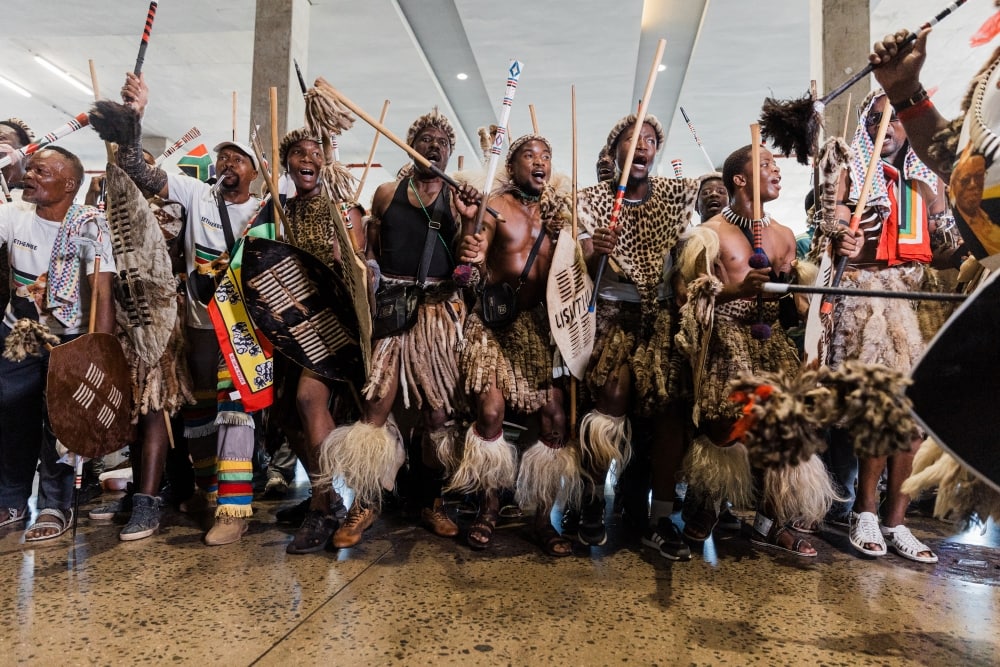
This party is literally his ticket to freedom and to be honest, it is a smart move – similar to his cunning moves to survive politically and judicially. It’s really no surprise that people like the “weekend special” Des van Rooyen also does not appear on the list, but they are only there because of Zuma’s orders. Without the former president’s appeal, MK would be stillborn and unable to possibly dethrone the EFF as the third largest party in the country.
Ethnic Zulu solidarity and the leader’s finely crafted victimhood round off his popularity. Now that he is free from the limits of the ANC and the country’s presidency, he freely speaks out against homosexuality, abortions, the Constitution and especially the ANC. He wants to send unwed teenage mothers to Robben Island, as well as bring back corporal punishment and African law. Whatever you think of this, these views are not even remotely reflected in the party’s manifesto.
“Whatever Zuma says is our position” is the unofficial mantra of MK. In fact, he can actually lose anything and his supporters will eat it up. Just as they still praised him (but not his party) when he did not show up for a party meeting in Thembisa.
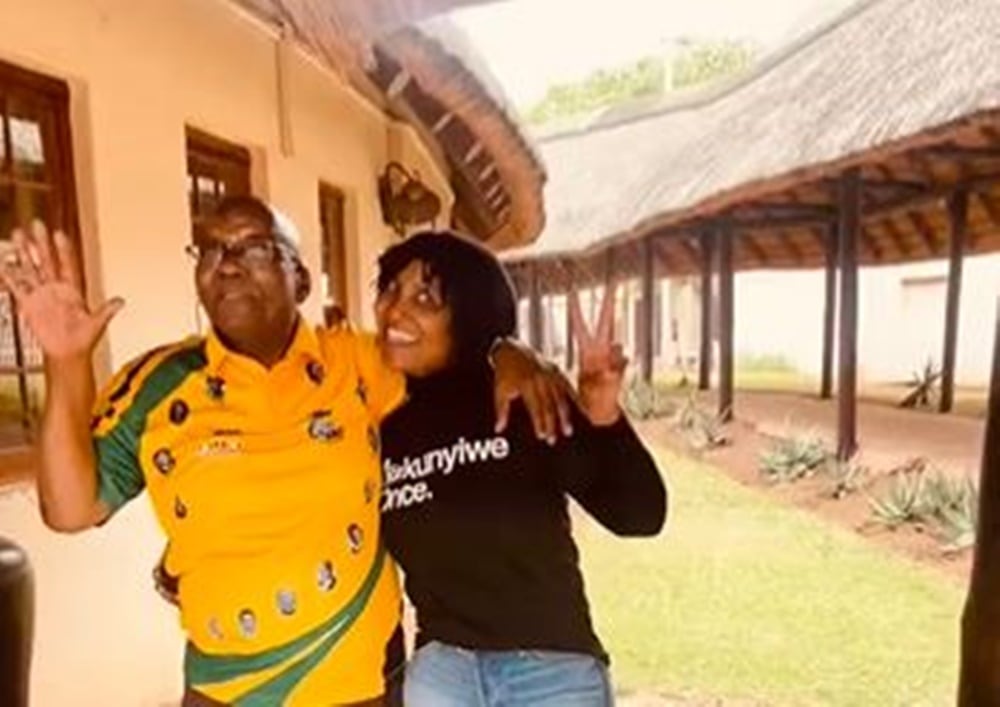
In January, he may have over-spoken when he wrongly encouraged a crowd to vote for the ANC (instead of MK). Was it simply out of habit, his age letting him down, or a true Freudian faux pas? It could most likely be all of them, but his preoccupation with the ANC is certainly dominant in his psyche. He wants so badly to return to the ANC, but to use and control it again.
The rest is mere noise and his supporters at rather large rallies agree with this. The Witness reported how MK supporters in green military uniform danced to anti-ANC songs at a gathering in Pietermaritzburg, but at the same time also admitted that they are still ANC members and are simply dissatisfied with pres. Cyril Ramaphosa’s power in the party. Like Cope, MK even derived their name from the ANC. But Cope simply did not have the leadership figures of MK and the EFF to remain relevant.
MK is not an opposition party with fresh ideas, but a strategic revenge project that largely relies on Zulu support and lost its raison d’être as soon as the tide turned in the ANC. But it is admittedly a supposedly successful project that may only succeed in its ultimate goal. They may not last long, but all that matters is the 2024 election.

